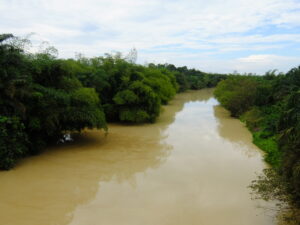Lack Of National Visionary: A Red Flag For The Gradual Depletion Of Ghana’s Natural Resources- Dr.Steve Manteaw
 BY: Mariilyn Badoo
BY: Mariilyn Badoo
Although Ghana has long started oil and gas extractions in the country since its discovered the “black gold” in 2007 ,the country still lacks a National Visionary that will guide and protect the sustenance of its natural resources for future generations. The welfare of Ghanaians and their generations to come largely depends on what measures government puts in place to ensure the sustenance of its natural resource wealth. Revenues generated from natural resources no matter how scanty they are skewed in the various sectors of the economy ,will continue to be one of the major contributing factors to the country’s GDP.
The need therefore, for the nation to develop a good governance framework for maximizing the benefits of natural resource extraction ,its protection ,management and the sustenance is crucial. The Co-Chair of Ghana Extractive Industries Transparency Initiative(GHEITI) Dr.Manteaw called for a collective participation and consensus both from Government and civil society organizations. This, the Campaigns Coordinator for ISODEC ,cautioned at the 6th edition of the annual media training on oil, gas and mining, organized by the Natural Resource Institute Governance ,in collaboration with the International Institute for ICT Journalism (Penplusbyte) ,with support from the African Centre for Media Excellence in Uganda, and journalists Environmental Association of Tanzania.
The two-week training programme currently underway in Ghana brought together twenty-four journalists both from the Print, Radio and Television . The objective is to have a knowledgeable and active media which is critical to having an informed and engaged public, civil society and Parliament that can hold government to account. The training programme also aims at increasing the quantity and quality of coverage of extractive-related issues in the media while equipping trainees with improved understanding of legal and policy documents on oil and gas in Ghana and better working relationships with civil society organizations. Participants were drawn from Ghana, Tanzania and Uganda.